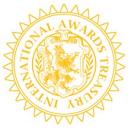 The origin of ‘lot’ comes from the Teutonic hleut, which referred to a pebble cast to make a decision during disputes or for dividing property. It may also have come from the Italian word lotteria, which pertained to one’s destiny or fate.
The origin of ‘lot’ comes from the Teutonic hleut, which referred to a pebble cast to make a decision during disputes or for dividing property. It may also have come from the Italian word lotteria, which pertained to one’s destiny or fate.
The drawing or casting of lots was often used in biblical references for everything from choosing a sacrificial goat (or even person) to picking someone to fill a position. The priesthood would often use lots for determining the decisions of God. As well, either god-directed or human divisions of land were decided by lots. The lots themselves could be straw, bones, sticks or stones. Religions from Islam to North American Indians used lots to determine one’s destiny.
During the 16th century in Genoa five people of the 90 citizens were chosen by lots for members of the senate. People began to place bets, choosing which five they thought would be picked. The person with the closest number of right guesses won the lottery. Florence held the first lottery that awarded cash prizes in 1530 to raise money for public works. Called La Lotto de Firenze, it also was a number lottery. Venice then formed the first government monopoly, with Florence, Milan, Rome and Turin following suit.
At the same time, Lo Giuoco del Lotto d’Italia began. A form of bingo, it had numbers laid on a grid. Lotteria Italia is played today around October-November and is based on this game of centuries past. From the time of the Roman Empire to the 21st century, Italy has loved its games of chance.